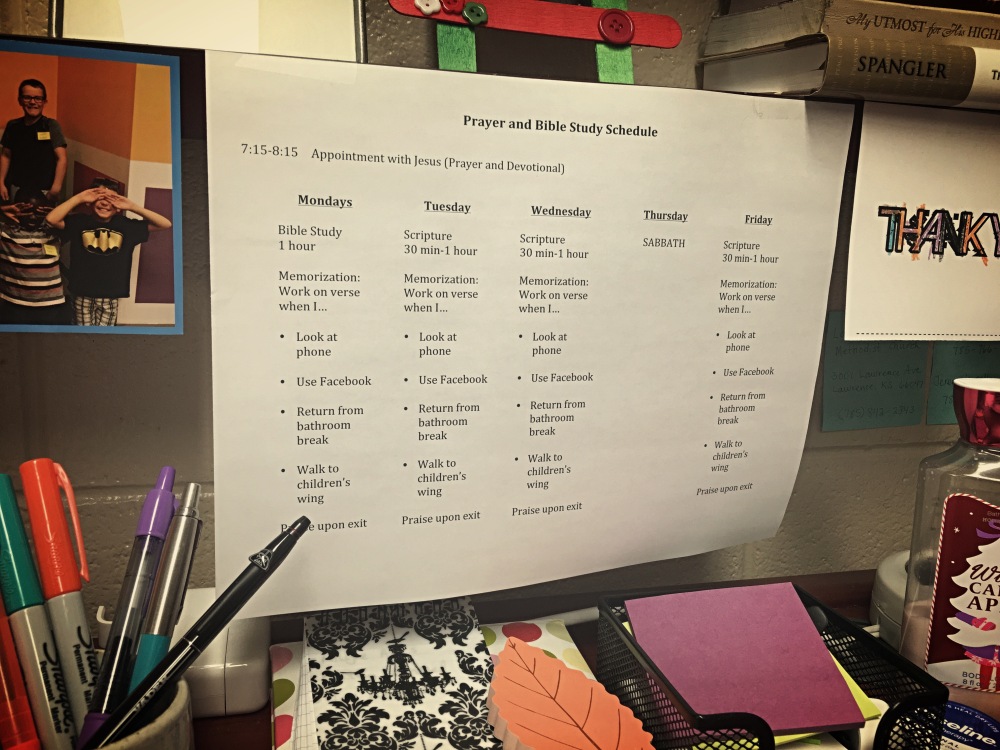
Quotations: The Encouragement of Words
People collect a variety of items. Stamps, coins, baseball cards, Willow Tree figurines.
I sort of envy those who collect Willow Tree figurines. Unfortunately, my rotten cat takes far too much joy in knocking them over for me to successfully collect them. I have one left. It’s days are numbered.
Instead, I collect other things.
My dad got me started collecting old vinyl rock albums from the 60’s and 70’s.
At some point I started collecting glass bottles.
I have a small but growing collection of Star Wars items.
And I collect quotes.
Many years ago, I got into the habit of jotting down powerful, challenging, or encouraging words when I would read. My desk and office would end up wallpapered with the scribbled quotations. When I moved, I felt torn taking down all the post-its and scraps of paper. As I moved into my new office, one of my first tasks was to again display the quotes.
They stare me down. They challenge me; To seek Christ. To love others deeply. To care for myself. They remind me of my purpose. They encourage me and spur me on. They are like fuel in the tank. They motivate.
Here are a selection of the quotes that I currently have posted in my office. Do you have a quote that has encouraged you?
Share it in the comments below!
Ministry
“Ministry: We’re not in it for the income. We’re in it for the outcome.” (Anonymous)
“Ministry is messy, because sin is messy. Get over it, get a mop, and start helping to clean it up!” (Jud Wilhite)
“Other people are going to find healing in your wounds. Your greatest life messages and your most effective ministry will come out of your deepest hurts.” (Rick Warren)
“Use your ministry to build people, not people to build your ministry.” (Jacquelyn K. Heasley)
“The gospel is only good news if it gets there in time.” (Carl F. H. Henry)
“Preach the gospel at all times, when necessary use words.” (St. Francis of Assisi)
Children
“Every child you encounter is a divine appointment.” (
“Children are great imitators. Give them something great to imitate.” (Anonymous)
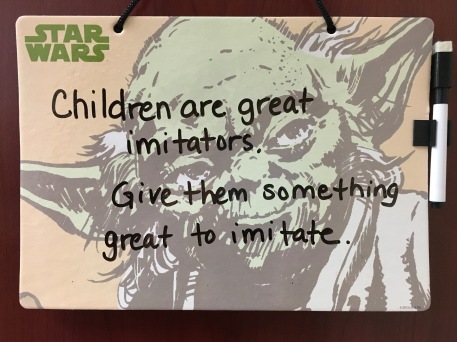
The quote that greets me every time I enter my office.
“A person’s a person, no matter how small.” (
“Children are likely to live up to what you believe of them.” (
“We worry about what a child will become tomorrow, yet we forget that he is someone today.” (
“It is easier to build strong children than to repair broken men.” (
“If I could relive my life, I would devote my entire ministry to reaching children for God!” (
“Don’t worry that children never listen to you; worry that they are always watching you.” (
“Kids go where there is excitement. They stay where there is love.” (Zig Ziglar)
“If you can’t explain it to a 6 year old, you don’t understand it yourself.” (Albert Einstein)
Leadership
“Remember the difference between a boss and a leader; a boss says ‘Go!’ A leader says ‘Let’s go!'” (E.M. Kelly)
“You do not lead by hitting people over the head. That’s assault, not leadership.” (Dwight D. Eisenhower)
“Nothing so conclusively proves a man’s ability to lead others as what he does from day to day to lead himself.” (Thomas J. Watson)
“Individually, we are one drop. Together, we are an ocean.” (Ryunosuke Satoro)
“Be faithful in the small things.” (Adapted from Luke 16:10)
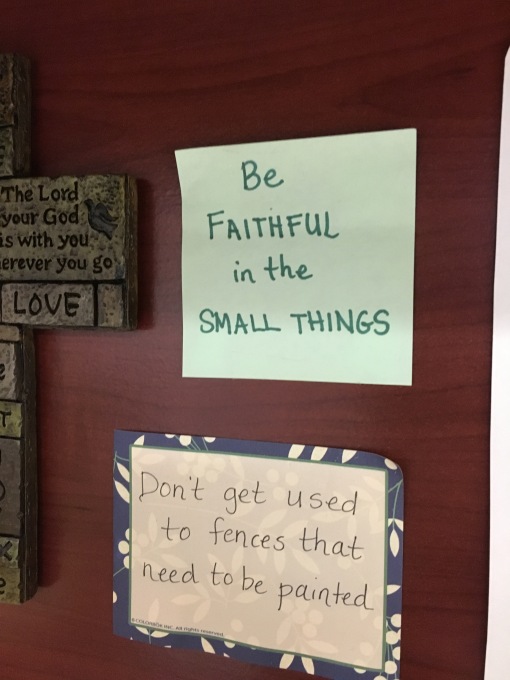
Displayed on my desk.
“Don’t get used to fences that need to be painted.” (My summary of a great point in Jim Wideman’s book “Children’s Ministry Leadership: The You-Can-Do-It Guide”)
Personal Edification
“Let your life speak.” (Old Quaker adage and title of Parker J. Palmer’s book “Let Your Life Speak: Listening for the Voice of Vocation”)
“Because we do not rest, we lose our way. We miss the compass points that show us where to go. We lose the nourishment that gives us succor. We miss the quiet that gives us wisdom. Poisoned by the hypnotic belief that good things come only through tireless effort, we never truly rest. And for want of rest, our lives are in danger.” (Wayne Muller)
“Relying on God has to begin all over again every day as if nothing had yet been done.” (C.S. Lewis)
“Let him who cannot be alone beware of community… Let him who is not in community beware of being alone… Each by itself has profound perils and pitfalls. One who wants fellowship without solitude plunges into the void of words and feelings, and the one who seeks solitude without fellowship perishes in the abyss of vanity, self-infatuation and despair.” (Dietrich Bonhoeffer)
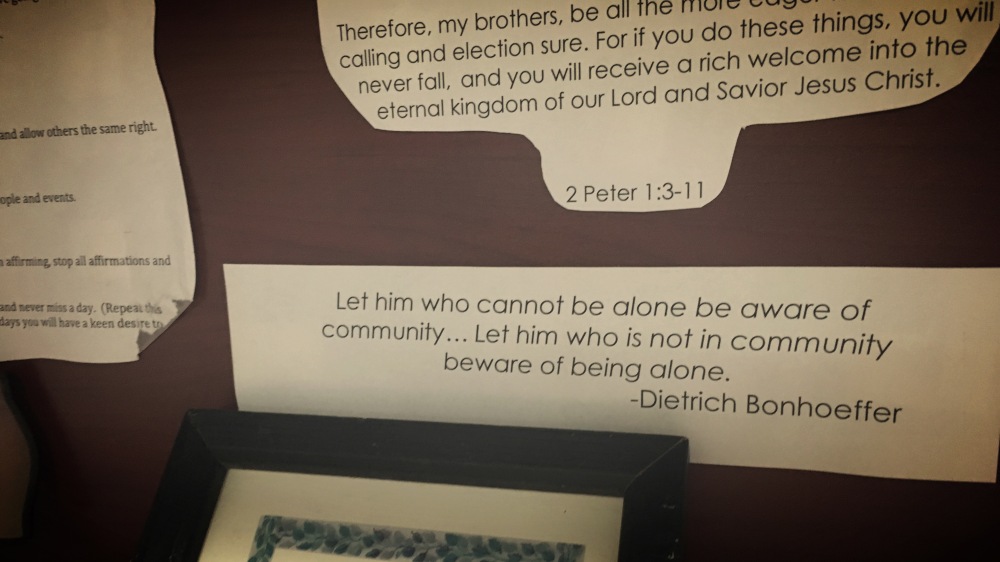
A much needed reminder for my introvert tendencies.

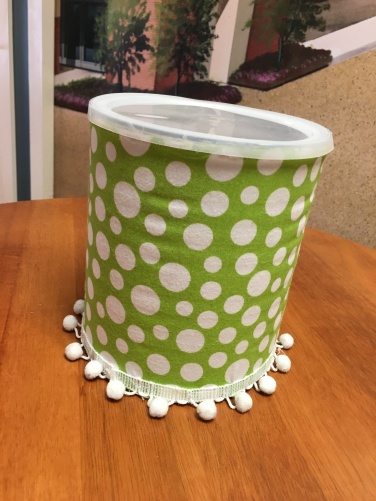
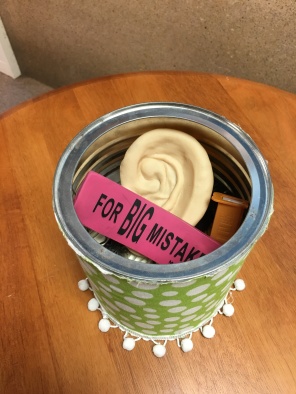 The most important part of this object lesson involves what you put in the can. Do not rule anything out. Keep an open mind and think creatively. A great place to start would be in your ministry office or ministry supply room. Look for objects that would fit into the can and think of how they might be used to point kids to Jesus.
The most important part of this object lesson involves what you put in the can. Do not rule anything out. Keep an open mind and think creatively. A great place to start would be in your ministry office or ministry supply room. Look for objects that would fit into the can and think of how they might be used to point kids to Jesus.
